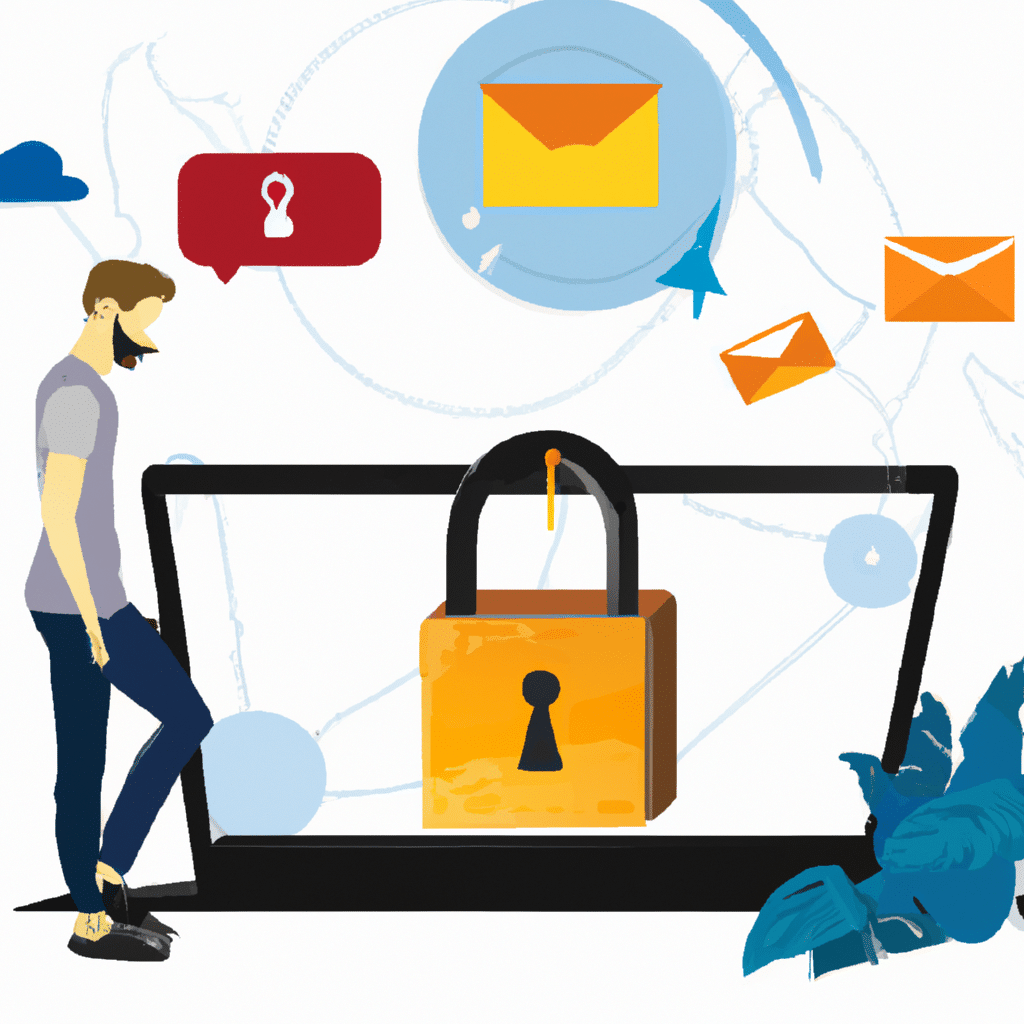Email is a crucial communication tool in today’s business world. It is an easy and convenient way to send messages, files, and other important information. However, it is also a prime target for cybercriminals who are looking to steal sensitive data, infect computer systems with malware, and compromise the security of your organization. In fact, email is one of the most common attack vectors for cybercriminals. Therefore, it is essential to take steps to improve your company’s email security. In this article, we will explore some of the best practices for email security that can help protect your organization from email-based attacks.

Use a Secure Email Service Provider
The first step in improving your company’s email security is to use a secure email service provider. Not all email service providers are created equal when it comes to security. Some providers may not have robust security measures in place, which can leave your organization vulnerable to attacks. Therefore, it is vital to choose an email service provider that offers strong security features, such as end-to-end encryption, multi-factor authentication, and spam filtering.
Train Your Employees on Email Security Best Practices
Your employees are the first line of defense against email-based attacks. Therefore, it is essential to train your employees on email security best practices. This training should include topics such as how to identify phishing emails, how to create strong passwords, how to avoid clicking on suspicious links, and how to report suspicious emails. Regular training sessions can help ensure that your employees are aware of the latest email-based threats and are equipped to handle them.
Use Email Encryption
Email encryption is an essential tool for protecting sensitive information in transit. Encryption ensures that only authorized recipients can read the email content. Therefore, it is essential to use email encryption for any emails that contain sensitive information, such as financial data, intellectual property, or personal information. Many email service providers offer encryption features, or you can use third-party encryption software.
Implement Email Authentication
Email authentication is a set of protocols that ensure that emails are sent from legitimate sources. Email authentication can help prevent email spoofing, where an attacker sends an email that appears to come from a trusted source. There are several email authentication protocols, such as SPF, DKIM, and DMARC, that you can implement to improve your email security.
Use Antivirus and Anti-Malware Software
Antivirus and anti-malware software are essential tools for protecting your organization’s computer systems from email-based attacks. These software programs can detect and remove malware, viruses, and other harmful software that can be delivered via email. It is crucial to keep these software programs up to date to ensure that they can detect the latest threats.
Use Strong Passwords and Two-Factor Authentication
Weak passwords are a common vulnerability in email security. Cybercriminals can use brute-force attacks to guess weak passwords and gain access to email accounts. Therefore, it is essential to use strong passwords that are difficult to guess. Additionally, you can use two-factor authentication to add an extra layer of security to your email accounts. Two-factor authentication requires users to provide two forms of identification to access their email accounts, such as a password and a fingerprint or a password and a text message code.
Conduct Regular Security Audits
Regular security audits can help identify vulnerabilities in your organization’s email security. These audits should look at your email service provider’s security features, your employees’ adherence to email security best practices, and any potential vulnerabilities in your computer systems. You can hire a third-party security firm to conduct these audits or use internal resources to perform them.
Conclusion
Email is a critical communication tool for businesses, but it is also a prime target for cybercriminals. Therefore, it is essential to take steps to improve your company’s email security. By using a secure email service provider, training your employees on email security best practices, using email encryption and authentication, using antivirus and anti-malware software, using strong passwords and two-factor authentication, and conducting regular security audits, you can help protect your organization from email-based attacks. Remember that email security is an ongoing process, and it is crucial to stay up to date on the latest threats and best practices to ensure that your organization’s email security remains strong.












